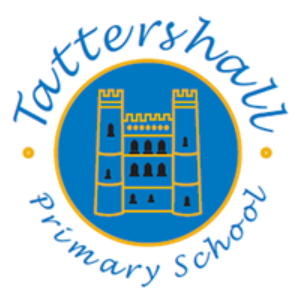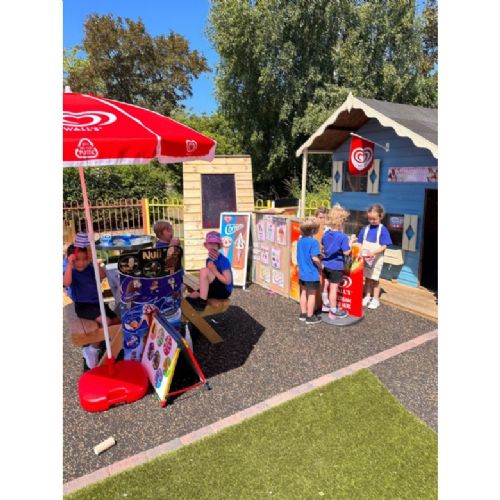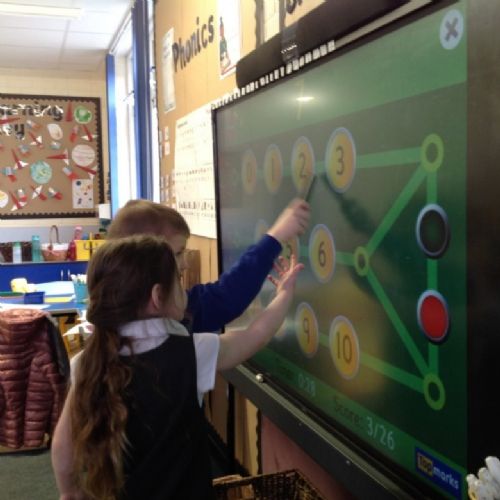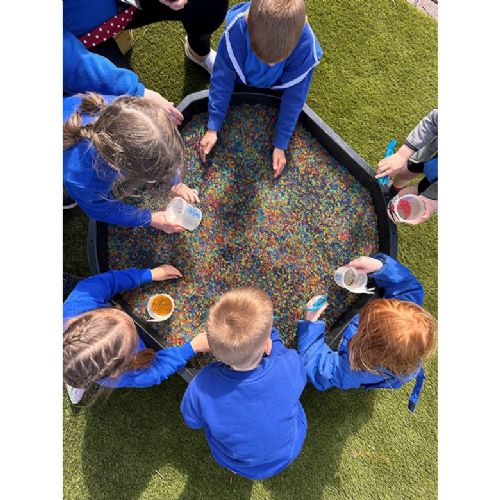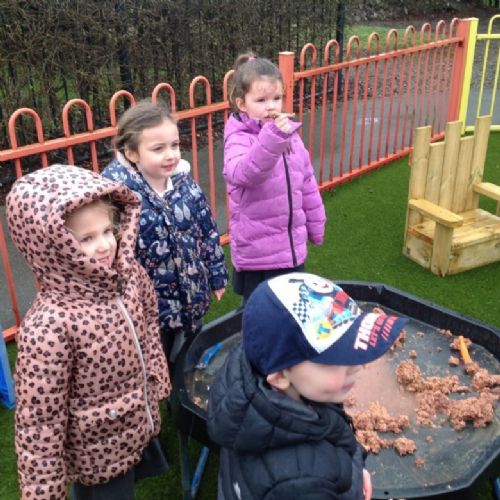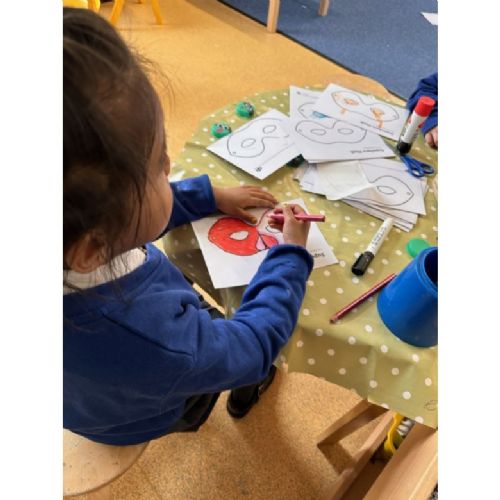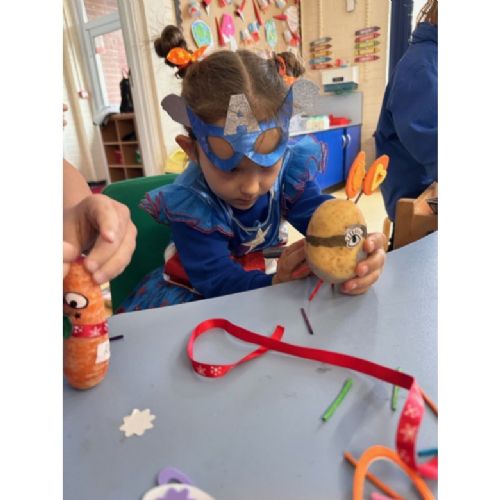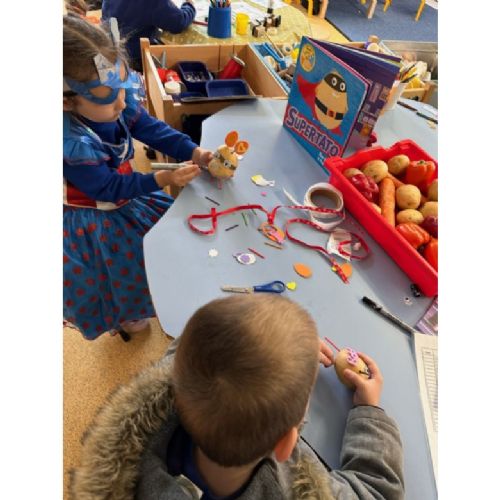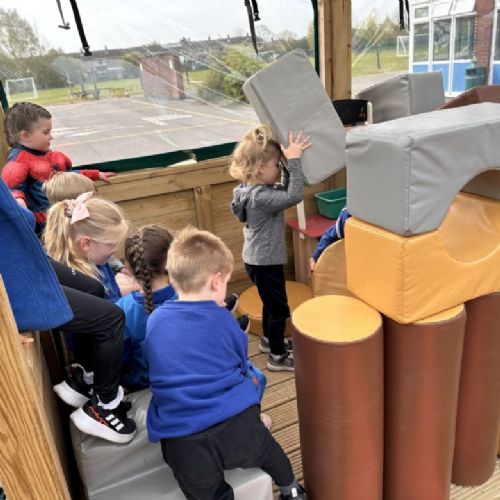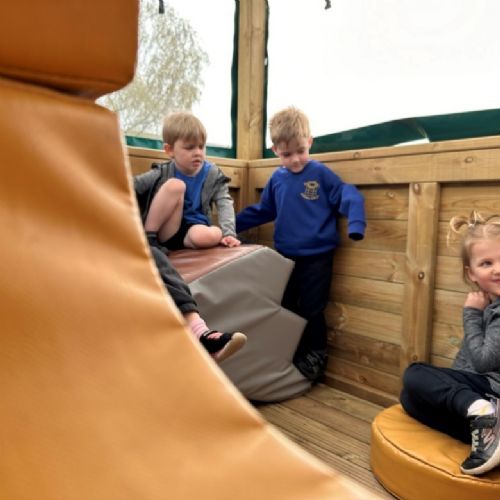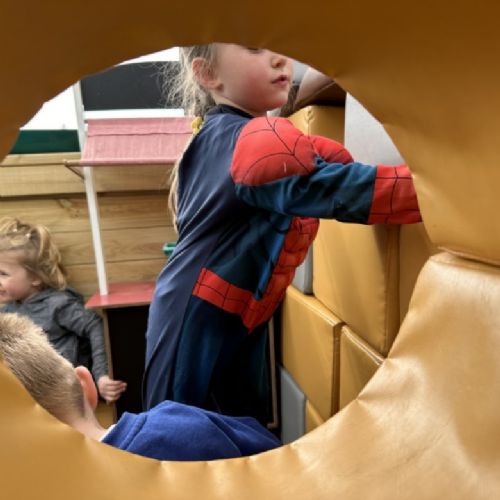Early Years
Welcome to our Early Years
The Reception Year at school is exciting and unique. At Tattershall we endeavour to grow curious, knowledgeable and happy lifelong learners, and Early Years (Reception) is where that journey for your children begins. We passionately believe in ensuring that early childhood development theory underpins our Early Years curriculum, and that play forms the basis for children’s learning through rehearsing, exploring and embedding new skills and knowledge.
‘Play is essential for children’s development, building their confidence as they learn to explore, relate to others, set their own goals and solve problems. Children learn by leading their own play, and by taking part in play which is guided by adults.’
Statutory Framework for the Early Years Foundation Stage (DFE, 2021)
EYFS at Tattershall
The Early Years Foundation Stage (EYFS) starts at birth and continues until age 5. At Tattershall, children join us for their first year of school, called the Reception Year. This is usually during the academic year that a child becomes 5 years old. We place significant importance on the uniqueness of this stage of a child’s development and we value each unique individual child who joins our school’s family.
At Tattershall, our skilled team in EYFS carefully support and extend our children through a range of exciting and awe-inspiring learning opportunities. Our learning environments are rich and stimulating, offering an open-ended child-led approach that encompasses both the Prime and Specific Areas of the Statutory Framework. In our setting, children free flow between the indoors and outdoors when engaging in child-led learning, which forms a large part of their day. Our team add enhancements which follow the children’s interests and challenge their thinking as they understand how children learn best (Characteristics of Effective Learning). Our EYFS team embrace and bring alive our school’s ethos by investing in the development of the ‘whole child’ through physical, social and holistic development with awe and wonder at the heart. By harnessing their curiosity, we can begin to grow their knowledge and embed a love for learning on their journey through Tattershall Primary School.
Characteristics of Effective Learning:
We recognise that children learn best when these characteristics are at the heart of their learning. Therefore, our children learn in this way every day!
- playing and exploring - children investigate and experience things, and ‘have a go’
- active learning - children concentrate and keep on trying if they encounter difficulties, and enjoy achievements
- creating and thinking critically - children have and develop their own ideas, make links between ideas, and develop strategies for doing things.
Enabling Environments
At Tattershall, we have carefully planned and implemented an exciting, enabling environment. Our environment extends beyond the classroom, to a large outdoor space as well as areas of natural woodland which we use on a regular basis for our ‘Welly Walks’. Our environments are organised to allow children to play, explore and learn securely, safely and independently. There are spaces where the children can be active and areas where they can be quiet. The environments are organised to enable children to independently find and locate equipment and resources to aid their learning in whichever way possible.
Open ended Maths and Literacy resources are spread throughout the provision which enable children to use skills learnt during group times in real, purposeful contexts.
Outside learning is as important as the learning that takes place indoors. Being outdoors offers opportunities for doing things in different ways and on different scales than when indoors. Our outdoor space offers the children opportunity to explore, use their senses and be physically active and exuberant. We provide resources and opportunities for the children to access outdoors that help the children to develop in all seven areas of learning.
Our Curriculum
Our ambitious and rich EYFS Curriculum is designed to grow curious, knowledgeable and happy lifelong learners. Our aim is to provide each unique individual, who we are privileged to teach, the skills and knowledge they need to flourish as members of society.
The core of our curriculum is formed from the Prime and Specific Areas of Learning within the Statutory Framework for the EYFS:
Prime Areas of Learning:
Personal Social and Emotional Development
- Self Regulation
- Managing Self
- Building Relationships
Physical Development
- Gross Motor Skills
- Fine Motor Skills
Communication and Language
- Listening, Attention and Understanding
- Speaking
Specific Areas of Learning:
Literacy
- Comprehension
- Word Reading
- Writing
Mathematics
- Number
- Numerical Patterns
Understanding the World
- Past and Present /li>
- People, Cultures and Communities
- The Natural World
Expressive Arts and Design
- Creating with Materials
- Being Imaginative and Expressive
The Prime Areas are particularly important for building a foundation for igniting children’s curiosity and enthusiasm for learning, forming relationships and thriving. When the Prime Areas are a strength through the curriculum and children are succeeding within them, they are enabled to be successful through the Specific Areas of learning. The Prime Areas of Learning truly underpin all other learning.
Our Curriculum has then further built upon the Prime and Specific Areas to ensure our curriculum is ambitious, purposeful for our learners in our context, exciting, engaging and forms a strong foundation for future learning in Key Stage One and beyond. Our curriculum is rich and nurtures children’s self-esteem and interests, both academic and creative. As a result, children are confident, resilient, content, independent, inspired, self-motivated, life-long learners.
Reception Curriculum Overview
Skill Planning within Continuous Provision
Expectations for Continuous Provision
Phonics and Early Reading
Transitions
Transition into Reception
Once families have accepted a place for their child at Tattershall, we will invite families in during the Summer Term before their child starts for a series of opportunities for both parents and their children to get to know our school and what to expect from their start with us. It also enables us to begin to build relationships with the children before September. The arrangements for this are shared directly with parents once they have accepted their place with us.
During the first half term in Reception, we concentrate on settling the children in, building relationships with them, helping them to make new friends and learn the routines and expectations of school. We provide an environment which allows the children to play and explore following their own interests and the staff support the children in accessing all the different areas in the classroom and outdoor spaces. These areas include creative, small world, publishing, reading, construction, block play, water, sand and role play.
As soon as is possible and appropriate, we begin a daily phonics session where children learn the letter sounds (phonemes) through short and regular phonics sessions. Children will begin to bring home reading books, which are exactly matched to the phonic knowledge they have acquired. The children will also have three other short teacher directed sessions per day, which ‘straddle’ a long session of child-led learning in both the morning and afternoon.
During the spring and summer term the children continue to learn through play with the staff moving their learning on through support and quality interactions. Phonics and Magic Maths sessions continue at the developing level of the children.
Transition from Reception to Year 1
The transition from Early Years to Year 1 at Tattershall Primary School is a crucial period with a key focus being around the comfort and ease of transition for the children. Early Years sets the foundation for a child's education and prepares them for the years of learning to come. Tattershall Primary School aims to make this transition as smooth as possible, ensuring that children are well-supported in their move to a more structured learning environment. The school provides opportunities for children to familiarise themselves with their new classroom, meet their new teacher, and get to know the expectations. Teachers also work closely with parents to ensure that the transition is successful and that children feel confident and happy as they prepare for the next stage of their learning journey.
Communication with Families
Relationships between school and families is fundamental for ensuring the best possible educational experience for the children. We pride ourselves on working closely with families and ensuring we are available and approachable as much as possible.
At Tattershall we strongly believe that each child's learning journey is unique and shared between child, school, and home. We use Tapestry Online Learning Journal within our Reception Class as a way to record and communicate children's experiences and learning more immediately, and to involve families more fully. Information about Tapestry is shared with families as they join our school.
